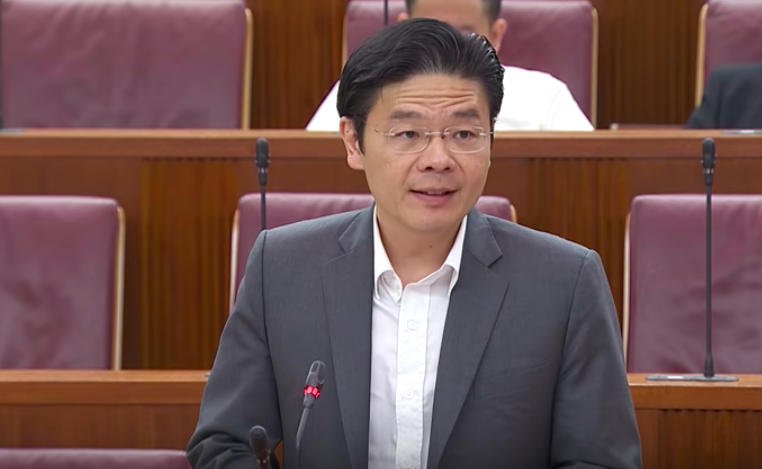Singapore — In the wake of an NUS academic getting sacked due to allegations of sexual misconduct from two students, Education Minister Lawrence Wong said in Parliament on Monday (Nov 2) that the Ministry of Education has been proactively working with Institutes of Higher Learning (IHLs) to address issues of sexual misconduct.
However, while he expects IHLs to tackle these issues in a timely and open manner, he added that IHLs must balance this with making sure that the the well-being and privacy of victims and everyone else in the community are safeguarded.
Mr Wong answered two questions concerning sexual misconduct, one from Ms He Ting Ru (WP-Sengkang GRC) and another from Mr Lim Biow Chuan (PAP-Mountbatten).
The WP MP asked Mr Wong how the ministry is “supervising the Institutes of Higher Learning on their progress on fighting sexual misconduct or violence on campus, whether the ministry will consider regular reports on sexual misconduct or violence on campus; and whether there is currently training being carried out for educators in Singapore on proper conduct with students”.
In his answer, the Education Minister made reference to the NUS academic’s case, which is now under investigation. He added that the ministry is working closely with IHLs “to review and step up their efforts to tackle the issue of sexual misconduct holistically”, since they “have a duty of care to their students and staff, which includes providing a safe environment for teaching and learning”.
Specifically, efforts have been enhanced by IHLs in four areas: Education on respect and appropriate behaviour; campus infrastructure, including CCTV coverage and safety patrols; victim support and counselling; and, finally, “disciplinary frameworks to impose tougher penalties for sexual misconduct”.
As for Ms He’s question on the training of educators, he said that “all faculty and staff are expected to uphold their institutions’ respective Codes of Conduct and regulations at all time”, which cover the behaviour of educators both on and off campus.
They are expected to keep “strictly professional” relationships with students, which “is necessary to safeguard the integrity of the relationship between educators and students in support of the education miss”.
He added that the staff receive periodic reminders and briefings in relation to this.
Mr Lim asked the minister “whether autonomous universities can provide clear communications with their students whenever there are allegations of misconduct involving teaching staff and students so that students can be better protected”.
Mr Wong said that in cases of sexual misconduct allegations, the accused persons are required by IHLs to stay way from campus grounds if the institutions deem that they could pose a danger to the community. “If the case involves a student or staff from the same institution, the IHLs may also impose a No-Contact Order to ensure that the alleged offender is prohibited from contacting or being in the vicinity of the party making the allegations,” he added.
For allegations of serious misconduct, police reports are filed.
IHLs themselves also carry out internal investigations to see if an accused member of the community has breached the Code of Conduct, with resulting disciplinary actions when needed. /TISG
Read also: Victims of NUS sexual misconduct saga say school made police report without their consent
Victims of NUS sexual misconduct saga say school made police report without their consent

